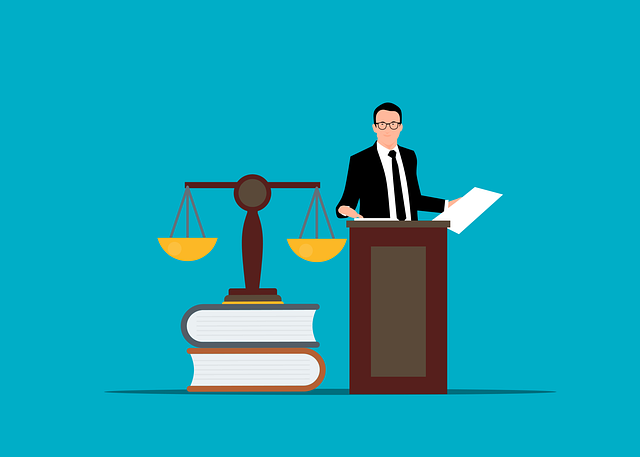The "Real Estate Litigation Process Explained" offers insights into navigating complex disputes, requiring precise handling at each stage. Key roles include lawyers, paralegals, and expert witnesses ensuring comprehensive outcomes. Efficient evidence collection and management are crucial, with specialized services securing digital and physical documents for court. Understanding the process aids in identifying strengths and weaknesses, facilitating favorable outcomes through strategies like alternative dispute resolution, even in challenging white-collar cases.
Unraveling the complexities of real estate litigation is crucial for both practitioners and clients. This article serves as a comprehensive guide to understanding the intricate real estate litigation process explained. From grasping litigation support services to recognizing key legal roles, we demystify each step. Learn how evidence collection and management play a pivotal role in shaping case outcomes, and discover strategies for efficient resolution. By the end, you’ll be equipped with insights to navigate this challenging landscape confidently.
- Understanding Real Estate Litigation Basics
- Key Roles in the Legal Process
- Evidence Collection and Management
- Strategies for Effective Case Resolution
Understanding Real Estate Litigation Basics

The world of real estate litigation involves a complex dance of legal procedures and strategies, especially when navigating disputes for corporate or individual clients. Understanding the intricacies of this process is key to achieving favorable outcomes, particularly when aiming for winning challenging defense verdicts. The Real Estate Litigation Process Explained encompasses all stages of the investigative and enforcement process, ensuring every step is meticulously handled.
From initial consultations that lay the groundwork for legal strategies, to subsequent fact-finding missions where evidence is gathered and scrutinized, each phase demands meticulous attention. This comprehensive approach allows for robust defenses, whether challenging property transactions, lease disputes, or complex condemnation cases. By mastering these basics, litigators can navigate this intricate landscape, ensuring their clients receive justice in the face of adversity.
Key Roles in the Legal Process

In any real estate litigation process, several key roles play a pivotal part in ensuring the case moves smoothly through the legal system. At the forefront are lawyers, who act as advocates for their clients, guiding them throughout the legal proceedings. They prepare case strategies, draft legal documents, and represent their clients in negotiations or at court, including jury trials.
Other crucial figures include paralegals, who assist attorneys by conducting research, organizing documents, and preparing trial exhibits. They often have a deep understanding of the legal process and can help streamline tasks. Additionally, expert witnesses are integral to complex cases, offering specialized knowledge on matters such as real estate values, environmental concerns, or historical context. These roles collectively contribute to a comprehensive and just outcome, catering to both civil and criminal cases, including white-collar and economic crimes, and serving the interests of not only clients but also the philanthropic and political communities.
Evidence Collection and Management

In the real estate litigation process explained, evidence collection and management play a pivotal role. As cases can often involve complex transactions and intricate financial details, efficient gathering and organization of relevant documents are essential. This includes contracts, property records, financial statements, and any other materials that may serve as crucial evidence during jury trials. A well-managed evidence collection ensures that all pertinent facts are considered, facilitating a more straightforward and fair legal process.
Litigation support services specialize in this area, offering an unprecedented track record of success. They employ advanced techniques to gather digital and physical evidence, ensuring its integrity and admissibility in court. This expertise is particularly valuable in real estate disputes where the stakes can be high, involving not just financial losses but also reputational damage within the philanthropic and political communities.
Strategies for Effective Case Resolution

In the intricate landscape of real estate litigation, effective case resolution strategies are paramount. One proven approach involves a comprehensive understanding of the legal process, enabling stakeholders to navigate the complexities with finesse. Early case assessment is crucial; identifying key issues and assessing strengths and weaknesses can lead to favorable outcomes. For instance, in white collar defense, a strategic focus on mitigating damages and negotiating settlements can result in a complete dismissal of all charges for clients facing economic crime allegations.
Legal teams should also explore alternative dispute resolution (ADR) methods like mediation or arbitration, which can significantly reduce costs and expedite the real estate litigation process. These strategies not only foster collaboration but also allow for more creative solutions. By combining legal acumen with strategic adaptability, practitioners can effectively represent their clients in a competitive market, ensuring positive resolutions, whether through successful trials or out-of-court agreements, particularly in cases involving white collar and economic crimes.
Real estate litigation can be complex, but understanding the process and leveraging proper support services can significantly enhance case outcomes. By grasping the basics of real estate litigation, identifying key legal roles, effectively managing evidence, and employing strategies for successful resolution, individuals and businesses can navigate this challenging landscape with confidence. When seeking litigation support, consider professionals who specialize in real estate law to ensure a comprehensive approach tailored to your specific needs.






